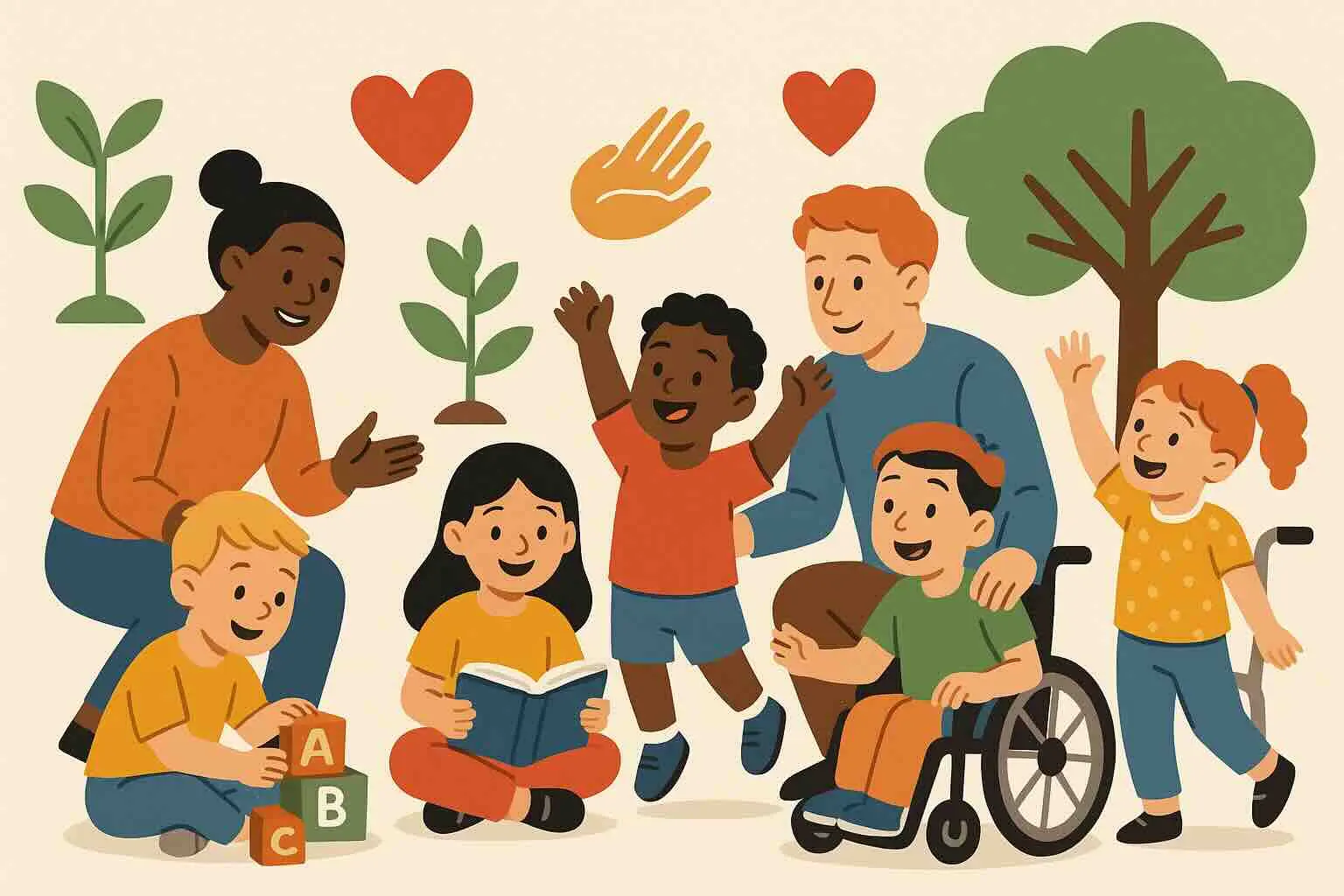What Are Childhood Issues?
Childhood spans from birth to adolescence (approximately ages 0–12) and is marked by rapid physical, cognitive, and social-emotional development. Childhood issues arise when developmental milestones are missed or when behavioral, emotional, or learning challenges persist, impacting a child’s ability to thrive. Early recognition and intervention lay the foundation for healthier long-term outcomes.
Recognizing Signs and Symptoms
Persistent concerns in these domains warrant attention:
DomainIndicatorsSocial-EmotionalDifficulty making friends, excessive fears or worries, frequent tantrums or aggressionCognitive-LanguageDelayed speech, learning difficulties, poor concentration, academic strugglesMotor SkillsDelayed crawling/walking, poor coordination, fine-motor challenges (e.g., handwriting)BehavioralHyperactivity, impulsivity, regression in skills, sleep or eating disturbances
If these patterns last beyond three months and interfere with daily life, consider professional evaluation.
Common Types of Childhood Issues
- Developmental Delays
Delays in speech/language, motor skills, or social milestones requiring early intervention programs. - Attention-Deficit/Hyperactivity Disorder (ADHD)
Characterized by inattention, hyperactivity, and impulsivity that impair functioning in school and home. - Autism Spectrum Disorders (ASD)
Social communication challenges, restricted interests, and repetitive behaviors observed in early childhood. - Anxiety and Mood Disorders
Excessive separation anxiety, phobias, or depressive symptoms uncommon for age. - Behavioral Disorders
Oppositional defiant behaviors or conduct issues persistently disrupting family and school life. - Learning Disorders
Dyslexia, dyscalculia, or nonverbal learning disabilities causing academic underperformance. - Trauma-Related Issues
Post-traumatic stress symptoms or attachment disruptions following adverse experiences.
How Childhood Issues Are Identified
Multidisciplinary assessment includes:
- Developmental Screenings: Pediatric check-ups with milestone queries.
- Standardized Assessments: Tools like the Ages & Stages Questionnaires or Conners’ Rating Scales.
- Observations: Reports from parents, teachers, and therapists on behavior in different settings.
- Specialist Evaluations: Speech and language, occupational, or psychological testing.
- Clinical Interviews: Comprehensive discussion of history, family context, and stressors.
Effective Support and Interventions
1. Play Therapy
Utilizes play to help children express emotions, build coping skills, and resolve conflicts in a developmentally appropriate medium.
2. Behavioral Therapy
Applied Behavior Analysis (ABA) for ASD and behavior modification plans for ADHD and conduct issues.
3. Family and Parent-Child Interaction Therapy (PCIT)
Coaching parents in consistent discipline, positive reinforcement, and improving parent-child attachment.
4. Cognitive Behavioral Therapy for Children (CBT-C)
Age-appropriate CBT to address anxiety, mood symptoms, and negative thought patterns.
5. Trauma-Focused CBT (TF-CBT)
Structured approach for children who have experienced trauma, integrating narrative, coping skills, and parental support.
6. Speech, Occupational, and Physical Therapies
Target specific delays in language, fine motor, sensory processing, and gross motor skills.
7. Educational Supports
504 Plans, Individualized Education Programs (IEPs), and specialized tutoring for learning disorders.
How Noah AI Supports Families
Noah AI offers 24/7, evidence-based guidance for parents and caregivers:
- Symptom Checker: Interactive questionnaires to identify potential issues and suggest next steps.
- Skill-Building Modules: Guided play therapy techniques, behavior charts, and parent coaching prompts.
- CBT Exercises: Simplified, child-friendly CBT activities for anxiety and mood regulation.
- Trauma Support Tools: TF-CBT–inspired storytelling templates and relaxation scripts.
- Developmental Tracking: Digital diaries for milestone monitoring with automated alerts.
- Resource Library: Curated articles and videos from Noah’s blog on childhood development and parenting.
Frequently Asked Questions
Q1: When should I seek professional evaluation?
If delays or behavioral concerns persist beyond expected age ranges or significantly impair daily life, consult a pediatrician or child psychologist.
Q2: Can interventions reverse developmental delays?
Early, targeted interventions (e.g., speech therapy, ABA) yield the best outcomes; many children make substantial gains with consistent support.
Q3: How long does TF-CBT take?
TF-CBT typically involves 12–16 sessions, including caregiver involvement, to process trauma and build coping skills.
Q4: Is Noah AI suitable for children directly?
Noah AI is designed for parents and caregivers, ensuring children receive age-appropriate professional interventions while families practice supportive techniques.
Q5: What if my child has multiple issues?
Integrated, multidisciplinary care—combining therapies and educational supports—addresses co-occurring challenges holistically.
Conclusion
Childhood issues span developmental, behavioral, emotional, and learning domains, but early identification and evidence-based interventions—like play therapy, CBT-C, PCIT, and specialized therapies—promote healthier trajectories. Noah AI extends professional support into daily family life, providing interactive tools, developmental tracking, and coaching to empower caregivers and improve outcomes for children facing challenges.
Ready to support your child’s development?
Download the Noah AI app for iPhone and Android today for personalized, on-demand guidance on navigating childhood issues and fostering your child’s growth and well-being.
References
- Ages & Stages Questionnaires® (ASQ). https://agesandstages.com/
- Conners’ Rating Scales. https://www.mhs.com/assessment?prodname=conners3
- Eyberg, S. M., & Fudal, S. L. “Parent-Child Interaction Therapy (PCIT).” PCIT International. https://pcit.org/
- Cohen, J. A., Mannarino, A. P., & Deblinger, E. “Trauma-Focused Cognitive Behavioral Therapy (TF-CBT).” https://tfcbt.org/
- American Psychological Association. “Cognitive Behavioral Therapy for Childhood Disorders.” https://www.apa.org/ptsd-guideline/patients-and-families/cognitive-behavioral
- American Occupational Therapy Association. “Pediatric Practice.” https://www.aota.org/Practice/Children-Youth.aspx
- National Institute of Mental Health. “Attention-Deficit/Hyperactivity Disorder.” https://www.nimh.nih.gov/health/topics/attention-deficit-hyperactivity-disorder-adhd
- Autism Speaks. “What Is Autism Spectrum Disorder?” https://www.autismspeaks.org/what-autism
- Understood. “Learning Disabilities.” https://www.understood.org/articles/en/learning-disability-basics







